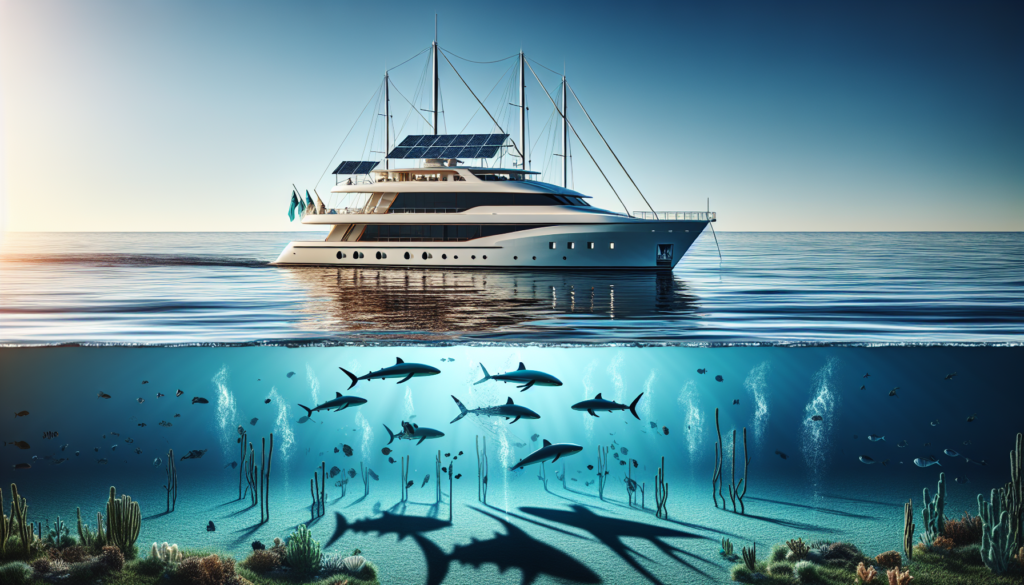Navigating through the rippling waves and marine-life filled waters, you’re now part of an exciting journey towards conservation with “eco-friendly boating advocacy and activism“. As a passionate boater or an aspiring one, your involvement can significantly impact the seascape. This captivating journey will lead you through the world of eco-friendly boating, discussing its importance, the role of advocacy and activism in its promotion and the various ways you can contribute to minimizing your nautical adventures’ environmental footprint. Together, let’s set sail towards a sustainable future.

Understanding Eco-Friendly Boating
When you venture out onto the water, you enjoy the breeze, the sounds of the waves, the sun on your skin. But have you ever considered the impact of your boating activities on the environment? That’s where the concept of eco-friendly boating comes in.
Definition of Eco-Friendly Boating
Eco-friendly boating refers to the practice of operating a boat in a way that either minimizes damage or contributes positively to the marine environment. It encompasses everything from the type of boat you use, the fuel it consumes, the way you handle waste, and even the maintenance of the vessel.
History and Evolution of Eco-Friendly Boating
Eco-friendly boating, like most green movements, is a relatively recent development. During the early years of boating, the focus was primarily on functionality and ability to navigate vast water bodies, with little regard for the environmental consequences. But with the growing awareness in the late 20th and early 21st century about human impacts on the environment, the concept of eco-friendly boating gained momentum. And today, it’s not just a fad, it has become an essential part of responsible boating.
Importance and Benefits of Eco-Friendly Boating
The benefits of eco-friendly boating are multiple, extending not only to the natural environment but also to your boating experience. By adopting eco-friendly practices, you ensure a cleaner and healthier marine ecosystem. This leads to clear waters and abundant wildlife, both of which enormously enhance your boating experience. Furthermore, some eco-friendly adjustments also lead to reduced costs in the long run — for example, better fuel efficiency meaning less fuel expense.
The Current Environmental Impact of Boating
The Link between Boating and the Environment
Boating activities have a direct and indirect effect on the environment. From the fuel used and the emissions produced, to noise pollution and physical disturbances, boating impacts all aspects of aquatic ecosystems.
Negative Effects of Traditional Boating on the Environment
Traditional boating practices have some undeniable negative effects on the environment. These include air and water pollution through emissions and oil leakage, noise disturbance altering marine wildlife’s behavior and increasing stress levels, and the destruction of marine habitats through anchorage and boat wakes.
Case Studies: Real Impact Examples
Take the case of coral reefs; studies show that anchoring damages delicate coral structures, leading to the decline of these remarkable and vital ecosystems. And it’s not just about the local environment; boating activities contribute to global emissions through fuel combustion, thereby adding to the pressing issue of climate change.

Eco-Friendly Boating Practices
Minimizing Carbon Footprint during Boating
Reducing your carbon footprint while boating can be achieved in several ways: choosing the right type of boat, efficient operations, using renewable fuel, and proper maintenance. By doing so, you’re not only preserving the marine environment but also actively reducing global warming.
Efficient Fuel Consumption
Using your fuel more efficiently can be achieved by maintaining an optimal speed, eliminating unnecessary weight on your boat, and making sure your boat’s engine is well-maintained and functioning efficiently.
Appropriate Waste and Noise Management
Ensuring you have proper waste management practices aboard is essential. This involves using the right type of waste collection and treatment equipment and procedures. Also, considering a quieter engine or a sound muffling system could significantly reduce your boat’s noise pollution.
Eco-Friendly Boating Technologies
Introduction to Green Boating Technologies
Green boating technologies are innovations designed to reduce the environmental impact of boating through enhancing performance, reducing emissions, or both. These technologies range from renewable energy solutions to improved design and materials.
Renewable Energy Sources for Boats
Solar, wind, and hydro-energy systems are some of the renewable sources challenging conventional fuel boats. For instance, solar panels can be used to power onboard systems, reducing the demand for generator use.
Innovations in Hull and Propeller Designs
Design improvements in the hull and propellers have made boats more hydrodynamic, reducing drag, and therefore improving the fuel efficiency of boats.
Development of Environmentally Friendly Materials for Boat Construction and Maintenance
Advancements have also been made in developing environmentally friendly materials for boat construction and maintenance. These materials, ranging from bio-based resins to non-toxic anti-fouling coatings, minimize the environmental impact both during production and throughout the boat’s life.

Current State of Eco-Friendly Boating Adoption
Statistics and Figures
While exact worldwide statistics can be hard to come by, there’s an undeniable growth trend in the adoption of eco-friendly boating practices and technologies.
Success Stories of Eco-friendly boaters
There are numerous success stories to draw inspiration from. These eco-friendly boaters showcase how one can enjoy boating without compromising the environment.
Challenges to Adoption
The challenges to full adoption of eco-friendly boating practices include the initial higher costs of green technologies, lack of awareness, and lack of infrastructure or policies in place to support eco-boating.
Role of Advocacy in Promoting Eco-Friendly Boating
Definition and Importance of Advocacy in Eco-Friendly Boating
Advocacy for eco-friendly boating involves the act of arguing in favor of, or supporting actions that promote, eco-boating. It’s crucial in creating awareness, influencing policy, and encouraging adoption of green boating practices.
Efforts by Different Advocacy Groups
There are several advocacy groups tirelessly championing eco-boating. These groups organize events, educate the boating community, and campaign for policy changes supportive of eco-boating.
Result of Advocacy Efforts
As a result of advocacy efforts, there’s a growing awareness of eco-boating and increased adoption of green practices and technologies.

Role of Activism in Promoting Eco-Friendly Boating
Definition of Activism in Eco-Friendly Boating
Activism in eco-friendly boating refers to vigorous actions taken to promote or impel changes towards eco-boating.
Current Activist Movements and Initiatives
There are various ongoing movements and initiatives by activists dedicated to green boating, ranging from global campaigns to local volunteer-led actions.
The Impact of Activism on Policy and Regulation
Activism has led to changes in policies and regulations at various levels, making it easier for boaters to adopt eco-friendly practices.
Government Policies and Regulations on Eco-Friendly Boating
Existing Policies and Regulations
Several policies and regulations exist to curtail the negative impacts of boating and encourage eco-friendly practices. These include restrictions on emissions, waste discharge, speed, anchoring in delicate habitats, and more.
Potential Policies and Regulations
With a growing emphasis on eco-boating, more potential policies and regulations are being discussed. These could further catalyze the transition to greener boating.
Role of Policies in Encouraging Eco-Friendly Boating Adoption
Government policies play a critical role in encouraging eco-boating, whether through providing incentives, enforcing green practices, or supporting the development and adoption of green technologies.
Impact of Eco-Friendly Boating on the Economy
Economic Benefits of Eco-Friendly Boating
The economic benefits of eco-friendly boating are substantial. It encourages the development of new technologies and services, thereby creating new markets and job opportunities.
Job Creation in the Green Boating Industry
The green boating industry is an exciting field with the potential for substantial job creation, from research and development to manufacturing and services.
Economic Challenges and Solutions
While there are challenges to greener boating from an economic perspective — primarily, the initial cost of eco-friendly technologies — solutions exist. Innovative financing models, grants, and policies can help overcome these hurdles.
Future Trends in Eco-Friendly Boating
Forecasted Technological Advancements
The future of eco-friendly boating looks promising, with continuing advancements in technology. From bio-fuelled engines to autonomous, solar-powered boats, the possibilities are endless.
Expected Impact on Environment and Economy
As eco-friendly boating becomes more prevalent, its impact on the environment will be profoundly positive. Economically, the eco-boating sector will contribute to a more sustainable and resilient future by creating economic growth and jobs, while protecting our invaluable marine ecosystems.
Potential Changes in Legislation and Regulations
As society as whole moves towards more sustainable practices, it’s likely that we’ll see more laws and regulations encouraging and enforcing green boating. These legislative changes can help protect our marine ecosystems and ensure the longevity of boating as an enjoyable pastime for generations to come.


[…] Non-Governmental Organizations (NGOs) can play a vital role in combating invasive species. This includes conducting research, implementing management strategies, running public awareness campaigns, and advocating for stronger legislation. […]